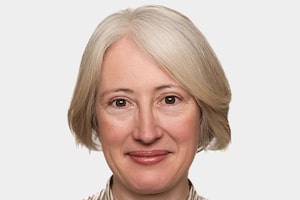Frances Woolley is a professor of economics at Carleton University, where she teaches public finance
On Worthwhile Canadian Initiative I have posted some data on the place of birth and coaching history of NHL coaches.
Of the 244 North American born coaches whose careers began in the post-expansion era (1968 or later) 12 per cent were born in the US, 14 per cent in Quebec, and 75 per cent in the Rest of Canada (the numbers don't add to 100 because of rounding). That 5:1 Rest-of-Canada to Quebec coaching ratio is far in excess of the approximately 3:1 Rest-of-Canada to Quebec ratio for the population as a whole. But it is only slightly higher than the Rest-of-Canada to Quebec ratio for on-ice players.
Former NHLer Bob Sirois has attributed the underrepresentation of Quebecois to discrimination. Even if owners are not themselves prejudiced, they might still choose not to recruit people from Quebec if they believe that Saskatchewan-born players sell more tickets than Montreal-born ones. And if there is discrimination at the junior and NHL-entry level, it could have knock-on effects later on, limiting the pool of potential Quebec-born coaching staff.
Another explanation is language. An NHL coach must be able to speak English. A francophone wishing to coach in the NHL must be bilingual, which limits the pool of potential francophone coaches. An anglophone, on the other hand, can be unilingual and still have a successful coaching career.
The standard way of testing for discrimination is to compare performance across groups of players. If, for example, there is discrimination against French Canadian forwards, then a French Canadian player will have to be better than an English Canadian to earn a place on a team's roster. A study carried out in the mid-1980s by University of Ottawa economists Marc Lavoie, Gilles Grenier and Serge Coulombe found exactly that: French Canadian and European forwards and defensemen typically performed better than their English Canadian and American counterparts. Research by Neil Longley using 1990s data also found that teams with fewer francophone players won less often, again supporting the discrimination hypothesis.
But what about coaching? In the post-expansion era, my calculations based on the data posted on Worthwhile Canadian Initiative suggest that francophone coaches have the best average playoff win-loss percentage, 46.4 per cent, while Canadian coaches born outside Quebec have the worst average percentage, 37.9 per cent. U.S.-born coaches actually have a stronger track-record, 43.1 per cent, than Canadian coaches born outside Quebec, but since the numbers are small, I cannot eliminate the possibility that these differences are just due to chance.
(The average win-loss percentage is less than 50 because it is dragged down by coaches such as Ron Stewart, Pat Kelly, Bill White or Keith Magnuson, who lost every playoff game they coached. If these coaches were excluded, the average playoff win-loss percentage of Canadian coaches born outside Quebec would rise to 41.6 per cent)
The figures presented here are not conclusive evidence of discrimination. For example, Francophone coaches might have better records because they coach teams with more talented players. A rigorous analysis would control for the quality of players on the team and other factors.
Moreover, language matters. A bilingual coach will be able to speak directly to both English-speaking and French-speaking players; a unilingual coach will be more limited in his ability to reach his players. The superior coaching performance of francophones might reflect bilingualism, not ethnic origins.
Wednesday night's match-up, with Vancouver coach and Quebec City native Alain Vigneault facing off against Boston coach, Blind River, Ont., native Claude Julien, will be another testament to the success of francophone coaches -- no matter who wins.
Follow Economy Lab on twitter
 Frances Woolley
Frances Woolley